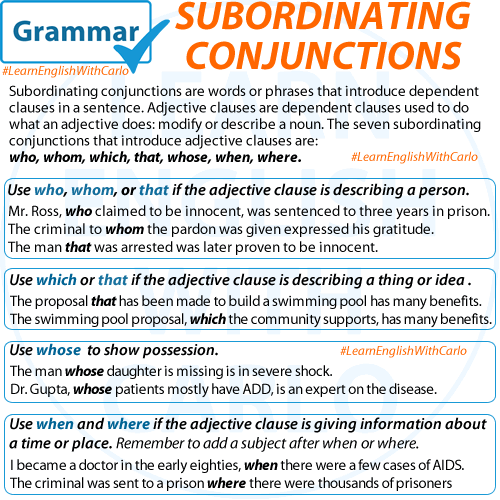
GRAMMAR – Subordinating Conjunctions
Subordinating conjunctions are words or phrases that introduce dependent clauses in a sentence. Adjective clauses are dependent clauses used to do what an adjective does: modify or describe a noun. The seven subordinating conjunctions that introduce adjective clauses are: who, whom, which, that, whose, when, where.
Use who, whom, or that if the adjective clause is describing a person.
- Mr. Ross, who claimed to be innocent, was sentenced to three years in prison.
- The criminal to whom the pardon was given expressed his gratitude.
- The man that was arrested was later proven to be innocent.
Use which or that if the adjective clause is describing a thing or idea.
- The proposal that has been made to build a swimming pool has many benefits.
- The swimming pool proposal, which the community supports, has many benefits.
Use whose to show possession.
- The man whose daughter is missing is in severe shock.
- Dr. Gupta, whose patients mostly have ADD, is an expert on the disease.
Use when and where if the adjective clause is giving information about a time or place.
Remember to add a subject after when or where.
- I became a doctor in the early eighties when there were a few cases of AIDS.
- The criminal was sent to a prison where there were thousands of prisoners
